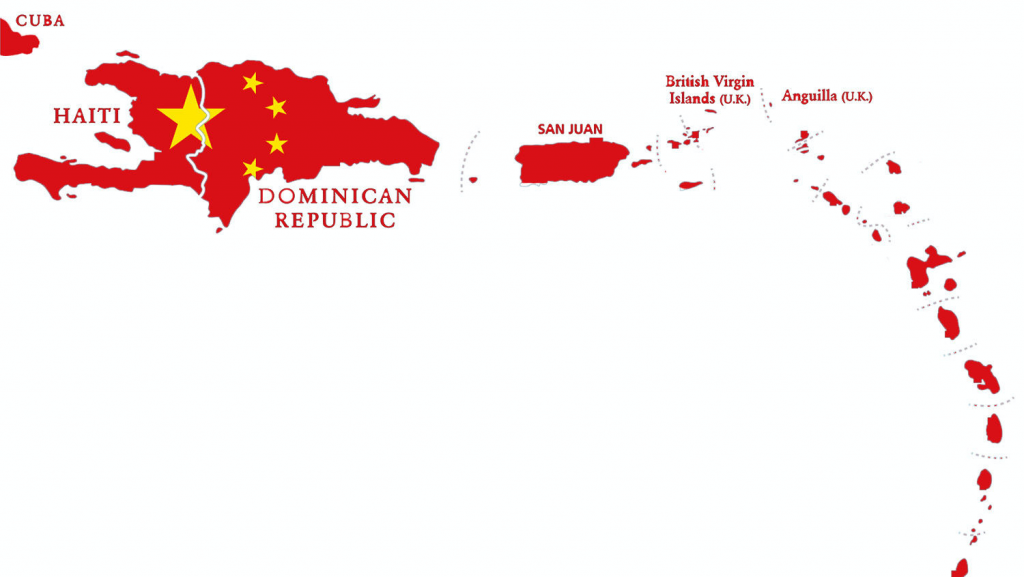There are endless possibilities with the use of ICTs in the various organizations that exist in our society – a quick look at the developed world will show how ICTs are used in the police force, hospitals, penal system and so on. Many of these e-Services are relatively new, and are not necessarily urgent for the Caribbean, but are likely to become increasingly important over the next decade or so.
E-Health is “concerned with promoting, empowering and facilitating health and well-being with individuals, families and communities, and the enhancement of professional practice through the use of information management, and information and communication technology (ICT).” [1]. Often described as the developed countries’ response to growing health costs due to their growing and ageing population, it also serves as a strategy for better healthcare and more efficient health services. This video composed by the e-Health Industries Innovation Centre of Swansea University gives a better idea of the other services possible with a larger e-Health network. Like other e-services, e-Health is a very costly undertaking, whose benefit must be carefully weighed against the cost before the roll-out of e-Health projects. In 2009, the region* spent an estimated total of US$4.2 billion on health care—this represents 6.63% of the region’s total GDP of US$63 billion for that year. Trinidad and Tobago spent the highest (US$1.2 billion or 5.6% of their GDP), and Dominica spent the lowest (US$22.3 million), or 5.9% of GDP.
Recent cries from Dr Fenton Ferguson, the Minister of Health for Jamaica, depict rising healthcare costs; particularly regarding increased instances of non-communicable diseases (NCDs) among the population–healthcare which requires the costliest of treatments. NCDs – heart disease, cancer, stroke and diabetes – are the top four causes of death in the Caribbean, all sharing “common underlying risk factors, namely unhealthy eating habits, physical inactivity, obesity, tobacco and alcohol use, and inadequate utilization of preventive health services.” [2].
Significant cost-saving in the health sector is one of the potentials that e-Health offers, as deduced from experimental research in Brazil [3]. The study also showed that e-Health allows doctors to better follow the medical conditions of their patients, as well as make earlier diagnoses; also reducing bottlenecks at hospitals. However, more research is important to determine how similar benefits can be reaped within the Caribbean region, given the size, cost structure and nature of our healthcare sector.
An e-Service that many should beare aware of (and have had experienced first-hand), is e-Learning. This tool is defined as “the delivery of a learning, training or education program by electronic means. E-learning involves the use of a computer or electronic device (e.g. a mobile phone) in some way to provide training, educational or learning material.” [4]. Ee-Learning is a popular feature in secondary and tertiary institutions, other training institutionsorganizations, and in some business places.
For the Caribbean, the next possible site is correctional facilities. One of the purposes of correctional facilities is to rehabilitate offenders, in order to reduce the chances of them becoming repeat-offenders upon release. E-Learning is used in some prisons in America and the UK, for example, to aid with this rehabilitation. It is used to help the inmates receive some kind of qualifications, in an effort to grant them a fresh start, that upon release, they will use their new knowledge and/or skills to live a wholesome life (watch this). In Brazil, a more hands-on approach is used where a fashion designer taught inmates in a maximum security prison how to knit and crochet for her label, providing them with a skill and a way to earn money [4][5]. Given that not everyone is willing to interact so closely with “hardened” criminals, e-Learning can provide that safety gap, providing distance-education to Caribbean inmates. It is no secret that the region struggles massively with crime and violence, so much so that four Caribbean nations made the list for The 20 Most Homicidal Countries in the World [6]. E-learning is just one of the many ways in which we can hope to rehabilitate the current inmates, in an effort to prevent the growth of crime upon their release.
The remaining articles in this series will look at the barriers to e-services in the region, as well as the solutions used by other countries to overcome similar barriers. Our slow advancement in the e-Services sector has offered the region at least one advantage, and that is to learn from the mistakes and success stories of the forerunners who have integrated ICTs in various parts of their society. Let’s see how much we can learn!
_____________
*Includes Antigua and Barbuda, The Bahamas, Barbados, Belize, Dominica, Grenada, Guyana, Haiti, Jamaica, St. Kitts and Nevis, St. Lucia, St. Vincent and the Grenadines, Suriname and, Trinidad and Tobago.









Custom Essay
After looking at the couple of the blog articles on your online journal, I genuinely welcome your method for writing an article. I spared as a most loved it to my bookmark website page list and will checking back rather than later.